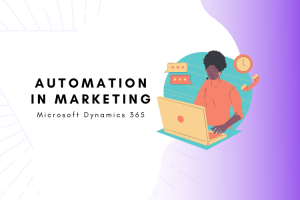How many times do you think you’ve already used an AI-driven platform, app, or service today?
The answer might come as a shock as it’s now one of society’s most progressively used advancements in the commercial and private industries. Its influence upon us goes almost unnoticed, but rest assured, it’s very much amongst us.
Health care, Education, Financial markets and services, Retail and E-commerce, Security, Social media, and of course, Digital marketing are all now, in no small degree, dependent upon it. Wherever there’s data to be processed,
“AI will be involved, doing it faster by the day as it self-learns and improves. Its efficiency is excellent news for digital marketing, enabling and creating strategies in a fraction of the time. ”
Its influence will only grow more substantial, and it will be the businesses that embrace it in its relative infancy that come out on top. Here are 9 practical ways to use AI in digital marketing so you can be one of them.
1. AI-Driven Content Creation
The emergence of AI-driven content has come as welcome relief for B2B businesses, as it replaces the manual and often time-consuming conventional process, and in turn, offers unlimited opportunities for increasing their ROI.
Two ways in which it’s changing the market are:
AI-powered tools for keyword research:
- Manual keyword research is a time-consuming and repetitive process; fortunately, it’s also quickly becoming a thing of the past. Now we have fully automated AI-powered keyword research tools that can look after the process for us while providing superior results in a fraction of the time.
AI-powered platforms for content writing:
- Creating content for digital marketing campaigns has never been easy. Writers must first have a knowledgeable understanding of the subject matter, the industry relating to it, and the ability to pen their thoughts in a sufficiently interesting way to engage with the reader on an emotional level.
Up to now, this has been a human-only endeavour; however, that’s no longer so; as technology evolves, the need for human writers diminishes! AI-powered content-generating tools such as Articoolo, Quill, and Wordsmith are already becoming the preferred choice with publications like Forbes and Associated Press.
2. Content Creation Chatbots
If you’ve used a live-chat customer support service, you may have experienced a sneaky suspicion that the “representative” chatting with you might not have been who they claimed to be, and more than likely, you’d be right.
Conversational agents (their professional title) mimic spoken or written human speech to stimulate interaction and conversation with their often-unaware human visitors. These innovative software applications are used for this purpose in two primary ways: a stand-alone app or a web-based application.
We find them most playing a customer service rep’s role, as Tier-one customer satisfaction reps and support operatives. Having access to millions of customer-related data points, they are well equipped in their position, often more so than their human counterparts.
As a machine learning applicant, their ability to detect patterns, repetitive problems, and predict user issues, makes them an invaluable requirement for modern businesses. One I’m sure we’ll all be chatting to without a second thought before long.
3. Branding
Artificial Intelligence has changed the way we see, interact with, and manage brands. And automation, efficiency, and accuracy have now reached levels once thought unobtainable.
Digital advertising is enabling brands to easily schedule, reach, and provide customers with relevant information.
AI is helping brands on other levels too. With AI branding platforms for creating logos and customer-related branding strategies, website designs, customer service capabilities, SEO optimization, and augmented reality are all now available to brands. Together they help make their lives easier and, quite possibly, substantially more profitable.
4. Email Marketing Campaigns
An email campaign’s success depends mainly upon the receiver opening the email, and this is where AI can provide businesses with a clear advantage over their competitors. Your email signature’s role is to catch the viewer’s attention and convince them that yours is an email they can’t afford to ignore, a difficult task if you’re sending out 5000 emails at a time!
AI solves this problem by analyzing customer behaviour and preferences, creating personalized and relevant subject lines, and scheduling email releases for your target market’s optimum time and day.
5. Voice Search Optimization
Voice search popularity is increasing. It stands to reason as nearly 60 % of global search queries are made on a mobile device; it’s growing in popularity on desktops too, especially for local search queries. And as these trends will only continue, voice search optimization’s importance shouldn’t be underestimated.
There are several ways you can optimize your site, and by doing so, you’ll increase your voice search traffic, and as much of the SEO tactics are also suitable for traditional search methods, your organic traffic too.
6. AI-powered Customer Insights
Customer insights are the key to successful marketing campaigns. AI machine learning algorithms can analyze billions of customer behavioural patterns, creating customer personas that provide you with marketing insights that ensure your campaigns are always on the money.
They can also:
- Identify any customer segments that should be excluded or included from campaigns.
- Match customers to products that are proven to be desirable based on past search results.
- Perform constant stock analysis, ensuring limited stock isn’t promoted to customers who regularly return items.
7. Personalized User Experience
To cut through the noise and ensure your intended viewers read your content, you have to personalize it somehow; otherwise, your marketing efforts could get lost in the crowd.
AI makes this possible by providing you with information regarding the viewer’s behavioural patterns, likes and dislikes, activities, and interests. It does it by analyzing community demographics, geographics, device usage, and a lot more.
The more you add personalization to your content, the more it will resonate with your audience, leading to higher conversion rates.
8. Automated Image Recognition
All of the big brands (Facebook, Amazon, and Pinterest, etc.) and almost 60% of all high-street fashion retailers now use AI image recognition to identify people with an accuracy exceeding 99%.
Knowing who you are and your shopping habits when you log on or walk into a store provides the retailer with the relative information needed for personalizing the experience, with welcome messages, product advertisements, and real-time discount offers.
9. Predictive Analysis
The most effective way of encouraging the consumer to buy your goods is by knowing what to advertise and when.
Predictive analysis uses statistical models to do exactly that, based on individual consumers past habits and behaviours. It also provides you with price point information (what a particular customer’s willing to pay for a product) and the type of features customers would like in a product upgrade.
Having this kind of customer information puts you at a distinct advantage compared to many competitors that do not. It’s comparable to playing poker with your opponent’s cards facing outwards!
Also, Read Inspiring AI Techs that Transformed Digital World










